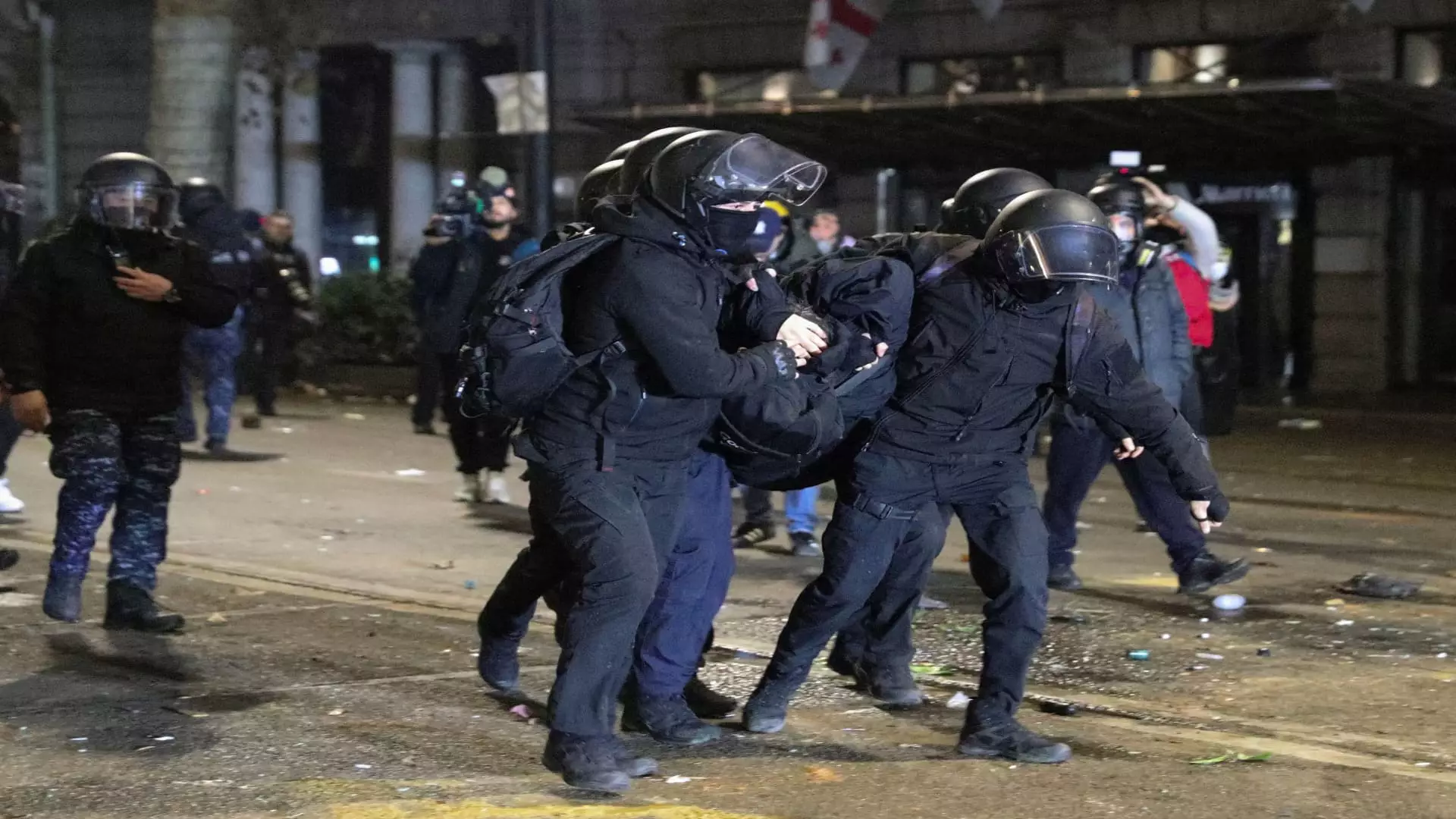In recent weeks, Georgia has found itself engulfed in a wave of protests that illuminate the country’s complex dance between domestic policy and European aspirations. The immediate trigger for these demonstrations was the government’s alarming decision to suspend negotiations aimed at advancing Georgia’s integration with the European Union. This political shift has struck a chord with the populace, leading tens of thousands to take to the streets of Tbilisi, where they expressed their discontent through stone-throwing, fireworks, and the burning of an effigy representing the governing elite.
The ramifications of these protests have been severe. Official reports indicate that at least 44 individuals required hospitalization, including protesters, police officers, and media personnel. The violent outbursts drew heavy-handed responses from the police, who resorted to using tear gas and water cannons to disperse the crowds. The confrontation between citizens demanding a voice in their nation’s future and state authorities enforcing order underscores the growing depths of societal division within Georgia. With public sentiment clearly shifting against the ruling party, the interaction between civilians and law enforcement highlights both the desire for democratic freedoms and the resistance from those in power.
Prime Minister Irakli Kobakhidze took a firm stand by declaring that any unlawful actions would be dealt with severely, indicating a willingness to crack down on dissent. His rhetoric exemplified a hardline approach that could further alienate a populace that perceives their government as out of touch with the urgencies of their aspirations. According to Kobakhidze, the cessation of EU negotiations was a necessary step against what he described as “shameful and offensive blackmail.” This statement suggests that the government believes it must prioritize national integrity over the complexities of international diplomacy, despite the backlash from both the public and international observers.
The response from the international community, particularly the European Union and the United States, has not been kind. Leaders from the EU conveyed serious concerns regarding the backsliding of democratic norms within Georgia. Their joint statement underscores a dissonance between the government’s actions and the aspirations of Georgian citizens, who overwhelmingly support EU integration. Relations with the U.S. have similarly cooled, with the State Department suspending its strategic partnership as a result of Georgia’s recent political decisions. For many Georgians, the interference of foreign powers, particularly Russia, looms large, raising fears that the country could slip back into the grasp of its historical overlord.
Amidst the protests, the role of the Georgian opposition has become more pronounced. Having secured parliamentary seats in a contested election that many allege was marred by malpractice, opposition leaders are demanding fair electoral conditions and new elections—a request that echoes the sentiments of the Georgian populace. President Salome Zourabichvili has voiced that her country risks becoming a “quasi-Russian” state under the governance of the ruling party, a claim that resonates with citizens who view Georgian Dream’s ties to Moscow with suspicion.
With the EU granting candidate status to Georgia in late 2023, the pressure is mounting on the current leadership to align national policies with the broader goals of European integration. However, the passage of controversial regulations, perceived as curbing democratic freedoms, has led to interruptions in financial support and increased scrutiny over Georgia’s governance. The path forward remains fraught with challenge; the government’s ability to navigate public discontent while advancing EU relationships will be paramount to maintaining stability.
As Georgia stands at this critical juncture, the unfolding situation captures the challenges many post-Soviet nations face in balancing external ambitions with internal sociopolitical realities. The climax of protests not only reflects the urgency of public dissent but also serves as a litmus test for the new administration on how they will address the intricate legacy shaped by their predecessors.



Leave a Reply